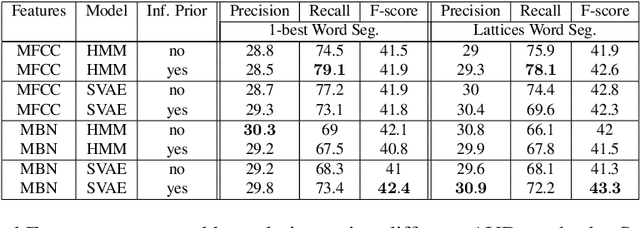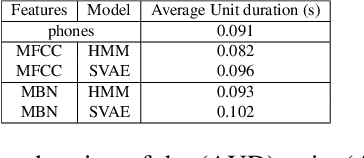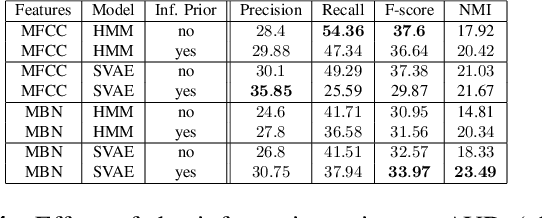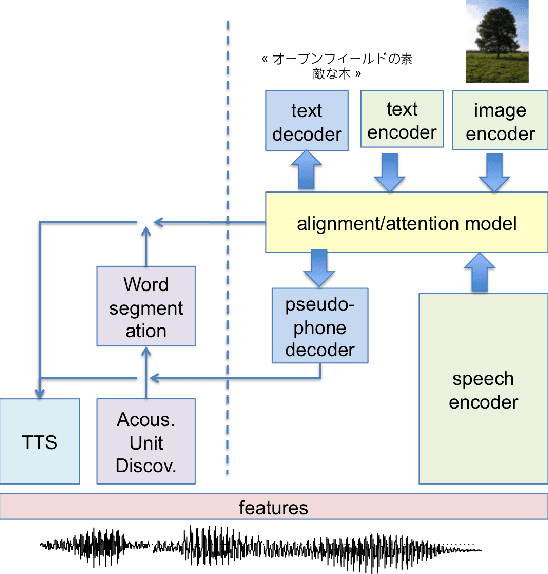Elin Larsen
Bayesian Models for Unit Discovery on a Very Low Resource Language
Feb 20, 2018



Abstract:Developing speech technologies for low-resource languages has become a very active research field over the last decade. Among others, Bayesian models have shown some promising results on artificial examples but still lack of in situ experiments. Our work applies state-of-the-art Bayesian models to unsupervised Acoustic Unit Discovery (AUD) in a real low-resource language scenario. We also show that Bayesian models can naturally integrate information from other resourceful languages by means of informative prior leading to more consistent discovered units. Finally, discovered acoustic units are used, either as the 1-best sequence or as a lattice, to perform word segmentation. Word segmentation results show that this Bayesian approach clearly outperforms a Segmental-DTW baseline on the same corpus.
Linguistic unit discovery from multi-modal inputs in unwritten languages: Summary of the "Speaking Rosetta" JSALT 2017 Workshop
Feb 14, 2018


Abstract:We summarize the accomplishments of a multi-disciplinary workshop exploring the computational and scientific issues surrounding the discovery of linguistic units (subwords and words) in a language without orthography. We study the replacement of orthographic transcriptions by images and/or translated text in a well-resourced language to help unsupervised discovery from raw speech.
 Add to Chrome
Add to Chrome Add to Firefox
Add to Firefox Add to Edge
Add to Edge